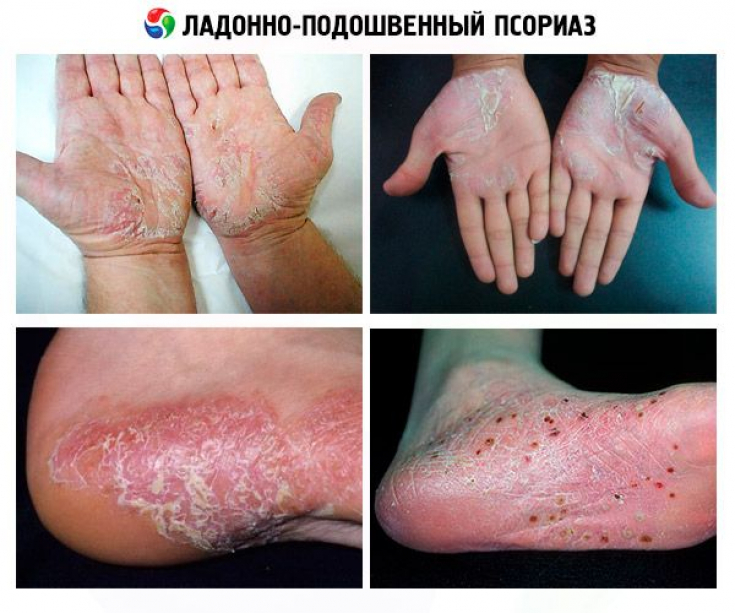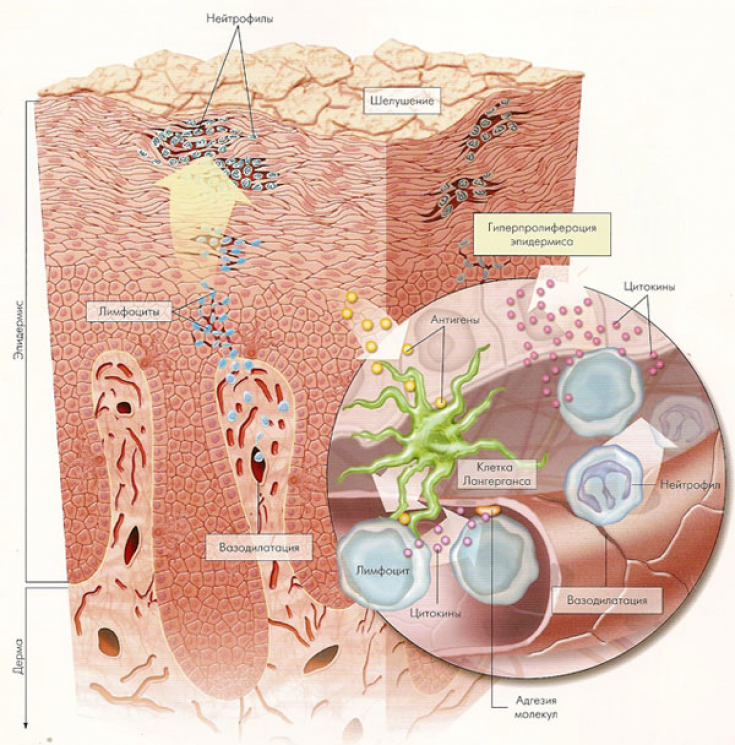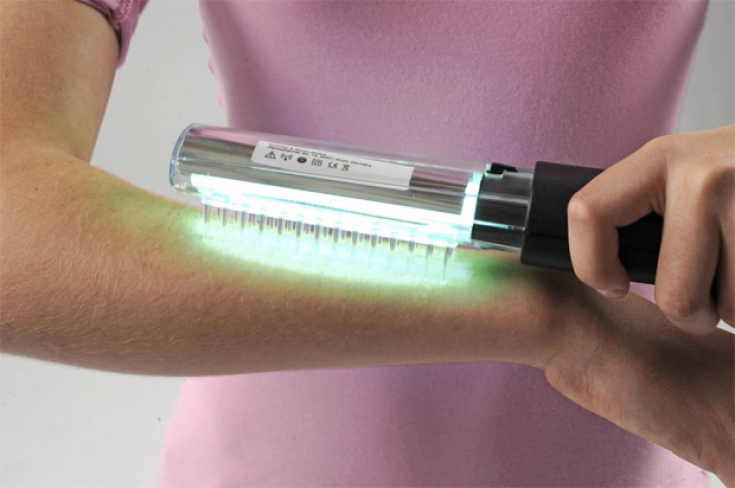For many centuries, psoriasis has remained a mystery to doctors and scientists. This is not surprising, since psoriasis – chronic non-infectious skin disease with unknown etiology.
Psoriasis is one of the most common dermatoses and is really difficult to treat, since each stage of the disease requires a differentiated therapeutic approach. Allocate progressive, stationary and regressive stages of the disease. On estet-portal.com read about the main clinical forms, stages of psoriasis and methods of treating the disease.
The main causes of psoriasis: theories and mechanisms of development
Since the etiology of psoriasis is not fully understood, there are several hypotheses that explain the causes of the development of this disease. The oldest – infectious, then there were viral, parasitic and lipid theories.
Behind the latest data, the pathogenesis of psoriasis is based on an autoimmune mechanism: due to increased proliferation of keratinocytes, immune cells produce inflammatory mediators.
Of the latest theories, it is worth noting neurogenic and genetic: there is no doubt that patients with psoriasis have functional disorders in the functioning of the nervous system, as well as a genetic predisposition to the disease.
You may be interested in: An innovative approach to the treatment of autoimmune diseases
The most common clinical forms in the early stages of psoriasis
Simple or psoriasis vulgaris has many clinical forms. There are such variants of simple psoriasis:
• dotted;
• drip;
• numular;
• diffuse;
• annular;
• geographic;
• curly;
• total.

Atypical forms of psoriasis include: psoriatic erythroderma, psoriatic arthropathy, exudative psoriasis and pustular form of the disease.
There are two varieties of – generalized psoriasis of Zumbusch and psoriasis of the soles and palms of Barber.
The main element of the rash – inflammatory lenticular papule. Favorite localization of psoriasis: scalp and extensor parts of the limbs.
Psoriasis can also damage the mucous membranes of the mouth and nails.

Peculiarities of the course of the disease depending on the stage of psoriasis
There are several stages during psoriasis. Each of them has its own characteristics: what is effective in the treatment of one is forbidden to be used in the treatment of others.
1. The progressive stage is characterized by the appearance of new rashes and their increase in volume. With it, the phenomenon of Auspitz and Koebner (isomorphic reaction) is observed. A corolla of papule growth is formed, since peeling is localized only in the center of the element.
2. For the stationary stage, in contrast to the progressive stage, the rashes are stable: fresh elements do not appear and do not increase in size. An isomorphic reaction is not caused, and the peeling spreads over the entire area of the papule.
3. At the regressive stage, the rashes gradually resolve, the inflammation decreases and the so-called Voronov's pseudo-atrophic rim appears (a whitish rim around the papules). there may be a complication – psoriatic erythroderma.
Treatment of psoriasis depending on the stage and cause of the disease
In the initial stage of the disease, it is necessary to inform the patient that it is strictly forbidden to comb fresh rashes. This is necessary in order to avoid spreading the process to other areas of the skin.
In the treatment of psoriasis, hyposensitizing drugs are used (solutions of sodium thiosulfate 10% intravenously at a rate of 10-15% or calcium gluconate 10%), antihistamines (loratadine, cetrizine hydrochloride, mebhydrolin), detoxification drugs (rheosorbilact 100-200 ml parenterally) , vitamins (B1, B12, A, E, D), sedatives (valerian, motherwort).

In the regressive stage, sanatorium treatment is indicated.
Caution should be taken when using ointments with corticosteroids (hydrocortisone analogs, synthetic glucocorticoids), only according to indications and in atypical forms of psoriasis.
In
psoriasis treatment diet and psycho-emotional factors are also important, so the patient needs to give up fatty, spicy food and alcohol, and also learn to control the level of stress in everyday life.
Read also:
Psoriasis treatment: experience with vitamin D







Add a comment